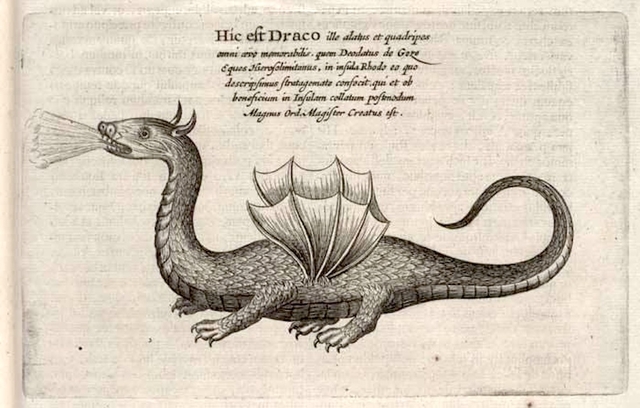 “To acquire the habit of reading is to construct for yourself a refuge from almost all the miseries of life.” - W. Somerset Maugham
“To acquire the habit of reading is to construct for yourself a refuge from almost all the miseries of life.” - W. Somerset Maugham
Weekly Reading: Silk Roads, Dragons, and GIFs
At the end of a long day of work, Machiavelli liked to change into “regal and courtly garments” and spend hours reading his favorite authors. For Machiavelli, this reading was the highlight of his day, and it was not a passive activity but a form of conversation, even communion: “I no longer fear poverty, nor do I tremble at the thought of death,” he wrote to his friend Francesco. “I become completely part of them.”
We at *The Appendix also believe in the power of the written word to bridge gaps, not only between people living today, but between the past and the present. This is the second installment of a new Appendix feature, Weekly Reading, that combines links to contemporary writing we enjoyed from the past week alongside extracts from authors who might be long dead.*
- The good people at Open Culture brought us a rare 1925 film about the making of the Oxford English Dictionary. Its a glimpse at a past world of books that feels decidedly foreign today (“Books were bound by gender-divided teams: A room of women labored in the ‘girls’ bindery section while men bound books in their own separate room.”)
- Via Princeton historian Matt Karp, a great quote from a letter by the late C. Vann Woodward about his loathing for Duke’s faux-tudor pretensions. (“Professors applauded & Woodward muttered & finally puked on the floor. Goddam, how I loathe that place.”)
- The Points blog about the history of alcohol and drugs offered up an in-depth analysis of the ideology that motivated the founder of the infamous Silk Road drug market.
- The always-delightful (even when its dark) Lapham’s Quarterly capped its recent “Death” issue with a miscellany of historical fatalities. Tenessee Williams choked to death on an eye-dropper cap, it turns out, and the painter Turner passed on after he was taken to a window so he could see the play of sunlight on a river.
- John Glassie, the author of a recent book about the Jesuit polymath (and Appendix inspiration) Athanasius Kircher, shared this dragon from Kircher’s 1664 Mundus Subterraneus.

“I am aware that two kinds of this animal have been distinguished by authors, the one with, the other without wings,” Kircher wrote. John Glassie
- Public Domain Review got a well deserved shout-out from The Guardian.
- The first animated GIF designed for a doctoral dissertation?
- New Inquiry launched their self-help issue.
- We found lots of photographic proof that meerkats wrestle (with handy chart.)
For more links to good writing and interesting discoveries, follow us on Twitter, Tumblr, and Facebook.

